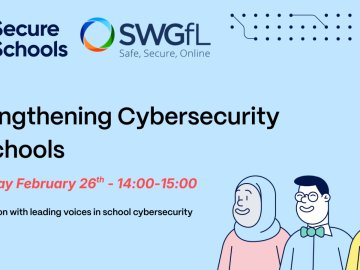As part of International Women’s Day which took place last week on March 8th, co-presenters Jess McBeath and Princess Lawal welcomed campaigner, author, and broadcaster Natasha Devon MBE to our podcast to discuss the pressures and difficulties women and girls face online.
Interface is our monthly online safety podcast which opens informative discussion about the latest and most talked about online safety and safeguarding topics. In episode 9, Natasha Devon MBE was welcomed, who works in schools and colleges throughout the UK to deliver talks and conduct research on mental health and body image with 14–18-year-olds.
Online Beauty Standards
Throughout the episode, our presenters talk in depth about the influence of online role models and their impact on young people’s views on body image and mental health. This episode explores how online content can be addressed so that girls can thrive online. They begin by encouraging better online and social media usage to address extreme beauty standards.
Natasha Devon goes onto explain body image trends and how narrowing beauty standards are affecting perceptions of fitness and health in women. Alongside this, she explores how young girls are idolising online health influencers without questioning their credibility.
The presenters then discuss the role of social media algorithms in promoting extreme body image content to vulnerable young people, whilst giving examples of how advertisers can be used to push back against harmful body image content online.
Creating Conversation about Digital Usage
As part of their discussion, Princess gives her own examples of how easily influenced girls can be in developing unrealistic body aspirations. She then suggests that encouraging boys and girls to have healthier attitudes towards each other’s bodies is essential in order to create sustainable change.
Our presenters talk in-depth about the difficulties of having these conversations around extreme online content with young people. Natasha also discusses her own experiences from working in schools, suggesting that we can connect with young people through an ‘asking not telling’ approach that encourages open conversation around digital usage.
Throughout the episode, our presenters give clear guidance on how to embed online safety into the school curriculum from a young age. They also actively encourage teachers to explain scientific literacy and encourage critical thinking skills over online usage throughout their classes. You can find more information about including lesson plans and activities on digital literacy and online safety into your classes through our ProjectEVOLVE tool, which assists professionals in educating, guiding and supporting young people through their use of technology.
This episode gives an important insight into how body image is affecting women and girls and what can be done to support them online. The Interface Podcast is freely available on all major podcast sites, including Spotify, Apple Music and Google Podcasts. It can also be found on the SWGfL website, and you can view a list of all episodes here:
You can also use our Report Harmful Content service if you are concerned about harmful content that you have seen online, which gives you further information and advice about how to report certain types of content.






